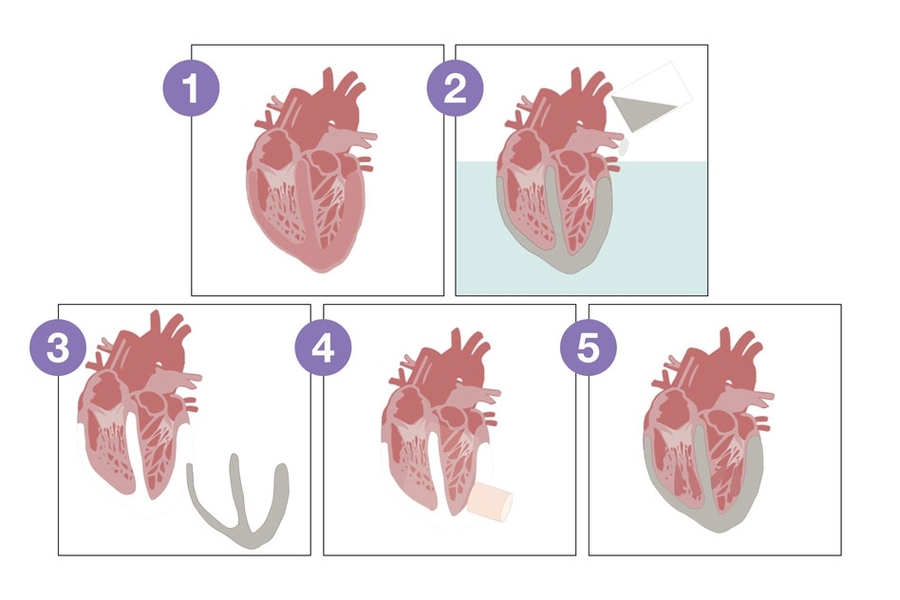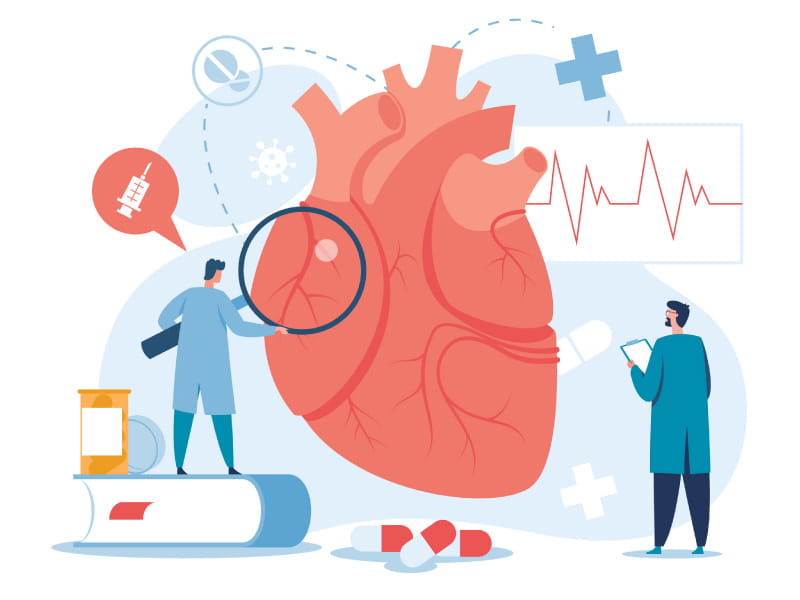The future of heart transplants is a topic that has long been discussed among medical professionals. It holds the potential to revolutionize the way we treat cardiovascular diseases, and recent breakthroughs are paving the way for a new era in cardiac care.
With advancements in surgical techniques, regenerative medicine, and gene therapy, doctors can now offer more hope than ever before to those suffering from life-threatening conditions. In this article, we will explore how these groundbreaking treatments could shape our understanding of cardiovascular disease and improve outcomes for patients all over the world.
Advances in Cardiac Tissue Engineering
Advances in cardiac tissue engineering promise to revolutionize the future of heart transplants. Recent developments have allowed scientists to create strong, durable 3D-printed tissues and organs that are nearly indistinguishable from natural ones. This technique is a breakthrough for organ transplantation, as it eliminates the need for waiting lists or donor availability.
Furthermore, these engineered tissues and organs can last much longer than those sourced from donors; this could help reduce the risk of organ rejection or failure due to age or other factors. Additionally, recent research into stem cell treatments has demonstrated potential therapeutic benefits for patients with cardiovascular diseases; these treatments may eventually be used instead of traditional surgeries such as bypasses or valve replacements.
Finally, new technologies such as nanotechnology and artificial intelligence can further improve our understanding of hearts and how they function so that we can better diagnose and treat them in the future. With all these advances in cardiac tissue engineering combined with modern medical technology, there is no doubt that heart transplants will become more successful than ever before – providing hope to countless individuals who require them around the world!
Breakthroughs in Heart Transplantation Technology

Advances in heart transplantation technology have come a long way since the first successful procedure was completed in 1967. Today, new and innovative strategies are being developed to make these life-saving surgeries even more effective.
New techniques are making it easier for surgeons to identify suitable donor organs, while improved surgical procedures ensure that transplanted organs remain viable for longer periods. In addition, the use of genetic engineering is allowing doctors to create implants from human stem cells that can be tailored specifically for each patient’s needs.
These breakthroughs in medical science are offering hope to many who previously had no other options but a terminal illness or death. With continued research and development, there is great potential for heart transplants to become an increasingly safe and reliable option for those suffering from chronic cardiovascular conditions.
Innovations in Artificial Heart Implants and Devices
The field of cardiovascular medicine has seen vast improvements over the years, with artificial heart implants and devices helping to revolutionize care for those affected by serious heart conditions. Advances in technology have allowed medical practitioners to create highly-developed, sophisticated life-saving machines with a range of features that can help improve the quality of life for patients.
These innovations include miniature pacemakers, external defibrillators, ventricular assist devices, and implantable cardioverter defibrillators (ICDs). With their use, more people can live longer and healthier lives than ever before.
Artificial hearts offer an alternative to traditional transplant surgery as they provide an uninterrupted supply of oxygenated blood throughout the body without the need for manual intervention or medication. Additionally, these types of implants are less invasive than other surgeries that may require larger incisions on the chest wall or opening up veins to insert probes into various parts of the body such as arteries or veins.
As new technologies continue to be developed and refined within this arena, we will likely see even greater breakthroughs when it comes to artificial heart implants and devices in the coming years – providing hope for those suffering from critical cardiac issues.
Developments in Stem Cell Therapy for Cardiovascular Disease

The future of heart transplants is being revolutionized by advancements in stem cell therapy for cardiovascular disease. This groundbreaking technology has the potential to reduce the need for traditional organ transplantation, instead using a patient’s cells to regrow healthy tissue and repair damaged organs.
Stem cell therapy works by introducing healthy new cells into the body which can then differentiate into different types of tissue or blood vessels as needed. In addition, this method also reduces the risk associated with rejection from a donor organ, as well as reducing hospital stays and recovery times post-surgery.
With further developments in research and clinical trials, researchers are hopeful that one-day stem cell therapy could become an effective treatment option for individuals suffering from cardiac diseases such as congestive heart failure or coronary artery disease.
Exploring New Pharmacological Treatments for Coronary Artery Disease
Recent advances in pharmacology have made it possible to explore new treatments for coronary artery disease, a major contributor to cardiovascular deaths. Through the use of medications, doctors are now able to slow the progression of this illness and manage its symptoms more effectively than ever before.
By targeting specific proteins and hormones involved in inflammation or calcification, these drugs can reduce plaque buildup along arteries and help patients maintain healthy blood pressure levels. In addition, certain compounds may also be used to improve overall circulation and provide better oxygenation throughout the body.
With all these possibilities on the horizon, researchers hope that soon they will find an effective way to treat heart disease without relying on transplants for long-term care.
Conclusion

The future of heart transplants is looking brighter thanks to recent cardiovascular breakthroughs. Herzspezialist, one of the leading companies in this field, is at the forefront of these advancements and continues to push the boundaries for what’s possible when it comes to providing lifesaving treatments for patients with serious cardiac problems. With an ever-increasing number of successful transplant surgery procedures being reported each year, there’s no doubt that heart transplants will continue to improve and help save lives in the years ahead.






